Now that your inground pool design process is complete it is time to move on to your pool construction! There are many steps to your pool construction process and below we outline what steps will be taken during your pool construction.
INGROUND POOL CONSTRUCTION PROCESS
1. PERMITS
Applicable building codes are assessed for your area and permits are obtained accordingly. Our experienced staff has worked closely with each municipality in the DC-Metro area and will obtain all necessary permits for your pool construction process. If a grading plan is required we will recommend a certified engineer and guide you through the process each step of the way. Permits may take anywhere from one day to 6 months to obtain depending on your municipality. We will typically explain the pool construction process for your specific municipality at our first meeting during the inground pool design process.
For more information about the permits view our Inground Pool Permit Process page.
2. EXCAVATION
On the morning of excavation, the sales member(s), site supervisor, and excavators approximately mark out the location, shape, and elevation of your swimming pool. We ask that you are home during this process in order to approve or tweak the design for the final time. Once approval is granted, we begin excavating with either a front-end loader or a Bobcat depending on your site. Simultaneously, additional team members are putting rebar stakes into the ground and setting forms to set the exact location, shape, and elevation. Keep in mind that these stakes will be larger around the entire perimeter of the pool (how much larger will depend on coping size and the engineering of your pool) to allow for the thickness of the gunite. All pre-grading for masonry patios and walls is typically done at the time of excavation.
3. STRUCTURAL STEEL
Reinforcement steel (rebar 1/2″ and 3/8″ diameter) is tied to form a mesh framework on the floor and walls of your pool.
4. PLUMBING
Schedule 40 PVC is used throughout the pool. Generally the size of the piping ranges from 2”, 1 ½,” and 1”. During this phase you will get a greater sense of the infrastructure that is required to operate your swimming pool. Typically, all pool equipment is set during this phase.
5. GUNITE
Gunite is pneumatically applied to create the pool shell. The pool shell includes the base flooring, wall areas, coves, and bond beam of your pool. Following strict specifications, gunite is applied to both sides of the rebar to suspend the bars within the walls and floor to form a solid structure. Water curing of the gunite is critical and the entire pool shell must be hosed or sprayed with water twice daily for one week. This slows the gunite’s curing process, and is a preventative measure that will minimize shrinkage cracks due to premature curing.
6. TILE/COPING
Several types of coping can be used – usually 12” or 14” in width. The thickness of the coping is generally 1 ½” to 2”. Because of the rough nature of some stone, however, the thickness of the coping may vary in some places. Conventional coping materials are flagstone, brick, and cast concrete. If an automatic pool cover is a part of your swimming pool project, the coping must be approved by Town and Country Pool Construction Department.
At this phase, Tile is also installed around the pool perimeter and other areas indicated on your design drawing. The installation of a 6” tile band will offer a smooth surface to clean the waterline of residue. Customers may provide their own tile, but all tile selections must be frostproof and approved by Town & Country Pools Construction Department.
7. MASONRY
The finishing materials of your choice are applied to the deck area. Decking that surrounds your pool can be concrete, stone, brick, architectural pavers, or many other materials. Concrete decking around the pool is 4″ minimum in thickness. Any deck shape changes, deck additions or deletions should be made prior to forming. Some changes may have additional costs, and no changes to the deck will be made after the deck has been poured and installed.
8. UTILITIES
On applicable pool construction projects, Gas, Electric and Waterlines are provided and installed by licensed and qualified Utility Contractors. Their work is scheduled and supervised by Town & Country Pools.
9. CLEAN-UP
Pool construction debris will be cleaned away from both the interior and the exterior of the swimming pool at this time. We will leave your backyard in a clean and neat condition, ready for final landscape grading and planting by your landscape contractor. We can refer you to several qualified landscape contractors. Just ask your pool construction Project Manager or your Sales Representative.
10. FENCING
At this point in the pool construction or perhaps sooner, depending upon the specific requirements of your project, the fence needs to be installed. After the next phase, the pool is immediately filled with water. Most Building Departments require the fencing completed before water is in the pool for pool safety reasons.
11. INTERIOR FINISH
At this point in the pool construction or perhaps sooner, depending upon the specific requirements of your project, the fence needs to be installed. After the next phase, the pool is immediately filled with water. Most Building Departments require the fencing completed before water is in the pool for pool safety reasons.
12. START-UP AND INDOCTRINATION
Your pool is now complete, and our service department will start up your equipment at this time.
At this point in the pool construction or perhaps sooner, depending upon the specific requirements of your project, the fence needs to be installed. After the next phase, the pool is immediately filled with water. Most Building Departments require the fencing completed before water is in the pool for pool safety reasons.
Pool Construction Photo Gallery
GETTING READY FOR POOL CONSTRUCTION
Understand the Inground Pool Construction Language
You may not have considered it, but autumn is the best time of year to begin researching for a swimming pool construction project. Which means you should start thinking about what is on your pool construction wish list. Why? Because this time of year swimming pool contractors are not as busy, prices may be lower and before the snowy or rainy season arrives, installing a swimming pool now means that it will be ready for you to swim as soon as the next pool season rolls around. If you’re thinking about talking with a swimming pool contractor from Town & Country Pool Builders it’s best to have an understanding of some of the terminology before you do so.
Pool Filters
When your swimming pool pump is on, the filter will draw the water from the skimmer and the main drain and push it through the filter. The filter’s job is to remove debris from the water, clean it and return it back into the swimming pool. When you’re looking into your pool construction project, be aware there are three types of pool filters: cartridge, DE and sand. Ask us what would be best and ask us to explain the pros and cons of each style.
Pool Renovation and Remodel
The heart of any swimming pool is the pool pump. This is what circulates the water, helps push dirty water into the filter and also circulates the chemicals when they’re added. The pump is charged with moving all of your pool water through the filter daily — it’s a big job! The pump draws water from the skimmer and the main drain then pushes it back into the pool through the pump, heater and filter — it is a seamless process that the pool owner never notices — until something goes wrong. When we come for a pool service we inspect the filter to assure it’s in working order.
Pool Maintenance
The care and maintenance of the swimming pool water. When you own a swimming pool, it’s important that you assure the water is clean and bacteria-free at all times. This can be accomplished by using pool chemicals such as chlorine or by installing a salt water chlorine generator. In addition to adding chemicals, you will need to test the water to assure the calcium hardness, pH and total undissolved solids are in proper ranges. This can sometimes be a delicate balancing act act and that is why many pool owners rely on the services of a pool contractor to test and balance the water chemistry.
These are three of the many items you will want to ask your pool contractor about when you’re working with him to get a pool project underway. You will also need to discuss whether you want a heater, a diving board or other accessories, the construction material itself and if your builder will also be you pool maintenance contractor once the project is complete. It is a long process, but if you start now, you could be saying, “Everyone into the pool!” at the start of next summer!
CONTACT TOWN & COUNTRY POOLS
GET STARTED ON YOUR INGROUND POOL CONSTRUCTION
Want the luxury inground swimming pool of your dreams? Contact us today to begin the process of turning your backyard into an oasis you and your family can enjoy. Let us bring our years of experience to your backyard and transform it into something you will love.

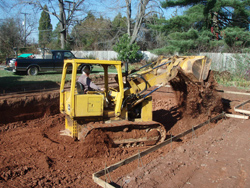

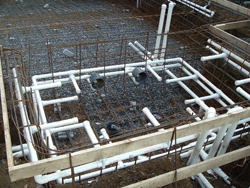

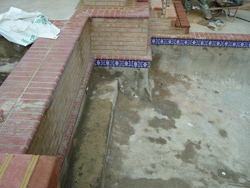
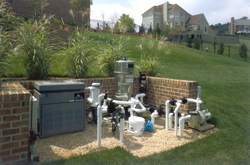



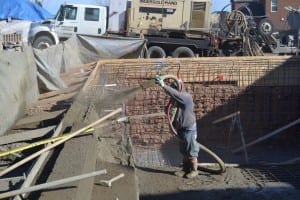

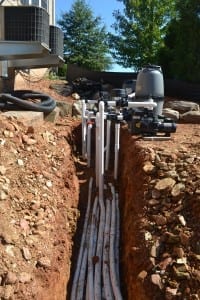


Thursday March 7, 2024 the office will be closed for training. ... See MoreSee Less
0 CommentsComment on Facebook
Project with Rolling Acres Landscaping - check them out - www.rollingacreslandscaping.com/portfolio/award-winning-nw-dc/ ... See MoreSee Less
0 CommentsComment on Facebook